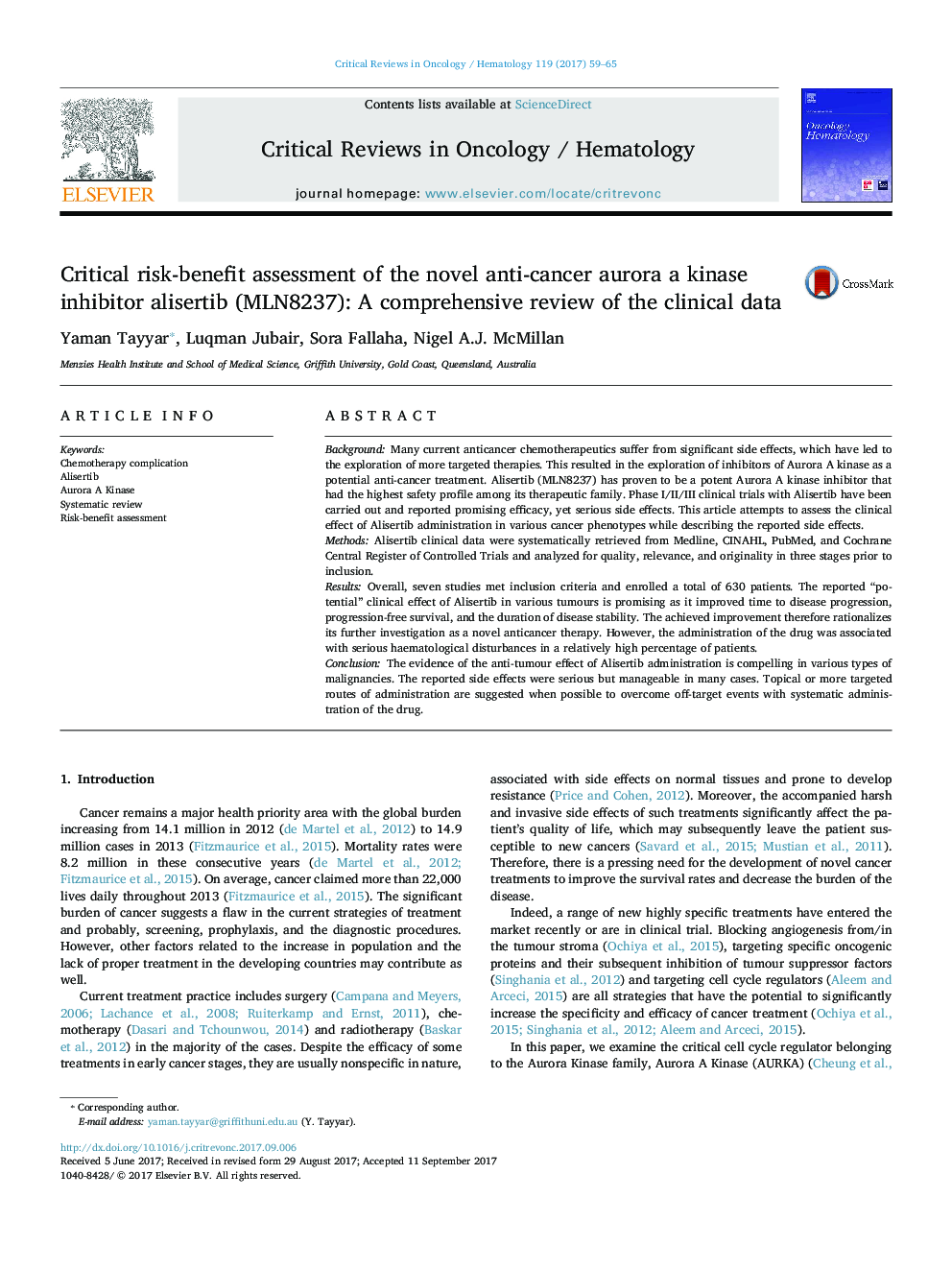| Article ID | Journal | Published Year | Pages | File Type |
|---|---|---|---|---|
| 5663990 | Critical Reviews in Oncology/Hematology | 2017 | 7 Pages |
BackgroundMany current anticancer chemotherapeutics suffer from significant side effects, which have led to the exploration of more targeted therapies. This resulted in the exploration of inhibitors of Aurora A kinase as a potential anti-cancer treatment. Alisertib (MLN8237) has proven to be a potent Aurora A kinase inhibitor that had the highest safety profile among its therapeutic family. Phase I/II/III clinical trials with Alisertib have been carried out and reported promising efficacy, yet serious side effects. This article attempts to assess the clinical effect of Alisertib administration in various cancer phenotypes while describing the reported side effects.MethodsAlisertib clinical data were systematically retrieved from Medline, CINAHL, PubMed, and Cochrane Central Register of Controlled Trials and analyzed for quality, relevance, and originality in three stages prior to inclusion.ResultsOverall, seven studies met inclusion criteria and enrolled a total of 630 patients. The reported “potential” clinical effect of Alisertib in various tumours is promising as it improved time to disease progression, progression-free survival, and the duration of disease stability. The achieved improvement therefore rationalizes its further investigation as a novel anticancer therapy. However, the administration of the drug was associated with serious haematological disturbances in a relatively high percentage of patients.ConclusionThe evidence of the anti-tumour effect of Alisertib administration is compelling in various types of malignancies. The reported side effects were serious but manageable in many cases. Topical or more targeted routes of administration are suggested when possible to overcome off-target events with systematic administration of the drug.
